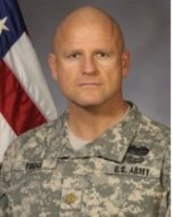Posted by Maj. Todd Yosick on June 22, 2011

Army Maj. Todd Yosick, DCoE deputy director for Resilience and Prevention directorate
I recently had the distinct privilege to speak at the Marine Command and General Staff College at Marine Corps Base Quantico, Va., to discuss Total Force Fitness, an initiative from Navy Adm. Mike Mullen, chairman of the Joint Chiefs of Staff. In the Chairman’s Guidance for 2011, Mullen states, “I will issue instructions that we adopt ‘Total Force Fitness,’ – a methodology for changing the way we understand, assess and maintain our people’s well-being and sustaining our ability to carry out our missions.” DCoE has been working directly with the Joint Chiefs of Staff in a supportive role for several of the domains of Total Force Fitness.
The past decade of operations, and the persistent conflicts we now face, presents challenges to service members unlike any other time in our nation’s history. Exposure to combat, operational stress and the demands of the modern battlefield requires leaders with the training and ability to both understand and mitigate the complex demands military operations place on our service members, their families, their units, and our extended military community. Mind-body strength and resilience will continue to be an important requirement for leadership to understand and instill at all levels as we move forward into the next decade.